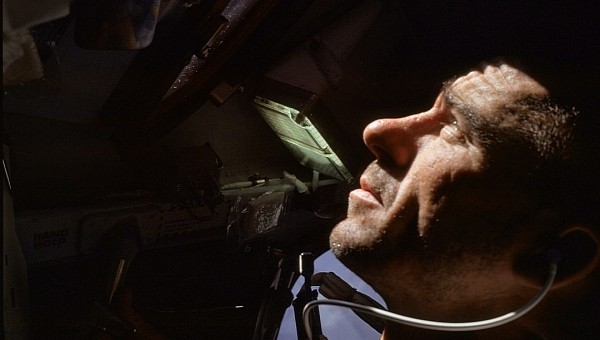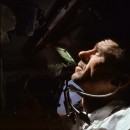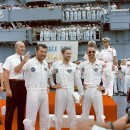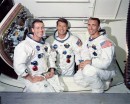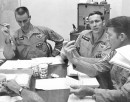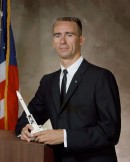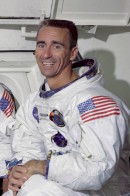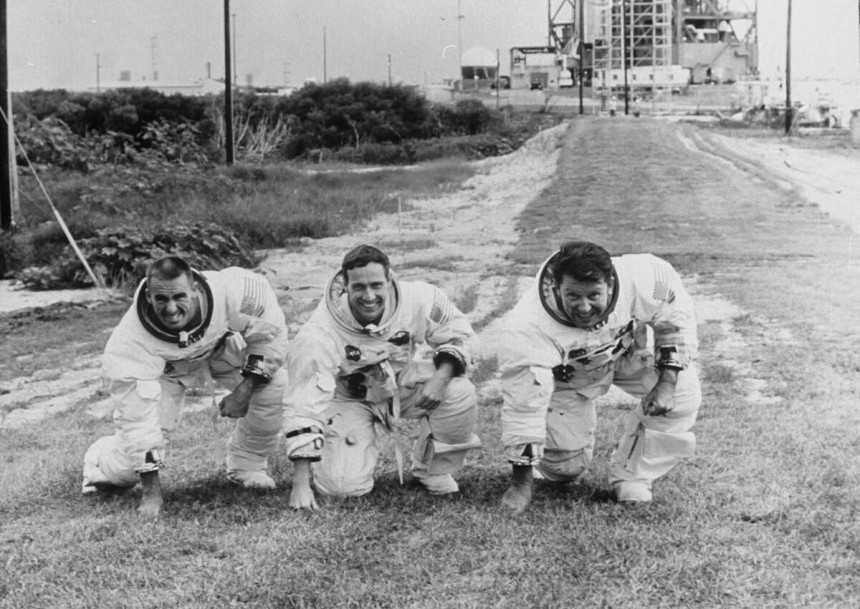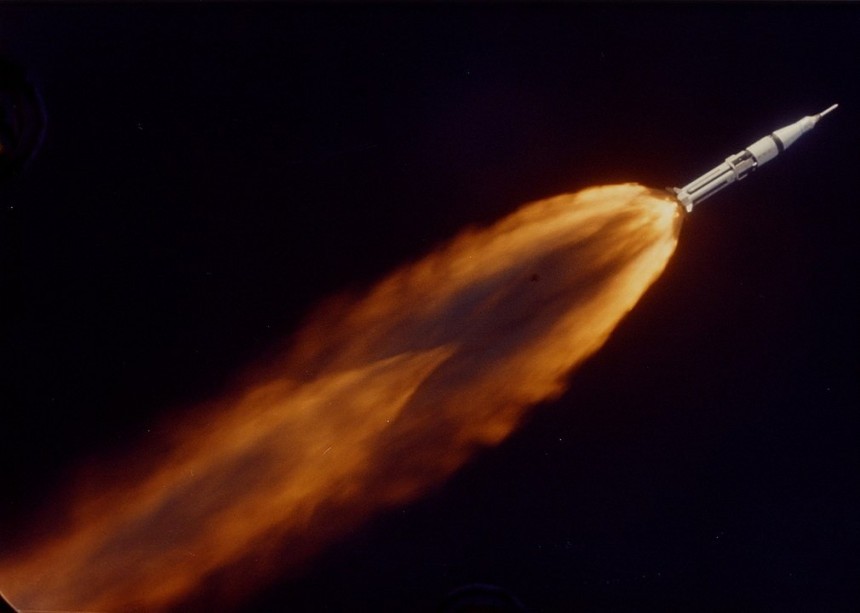We all remember Neil Armstrong's famous words as the Apollo 11 astronaut took the first living, breathing human steps on the surface of the Moon. Small steps and giant leaps for man and mankind. But the story of those who came before Apollo 11, Armstrong, and Aldrin is often lost in the media shuffle.
The stories of astronauts who, without their support, the Apollo program would have never made it to the Moon. Yesterday, January 3rd, 2023, the world lost one such pivotal astronaut, the last of the living Apollo 7 crewmember. This is the story of Walter Cunningham, a fighter pilot, physicist, entrepreneur, and the Lunar Module Pilot of Apollo 7.
Born in the scrappy working-class town of Creston, Iowa, on March 16th, 1932, Ronnie Walter Cunningham was a man destined to look in jealousy as birds took to the skies, seemingly with little effort whatsoever. Small wonder why Cunningham applied to join the United States Navy, ditching his studies at Santa Monica College in 1951 to do so.
Cunningham would ultimately transfer to the Marine Corps while serving in Korea alongside United Nations forces. The man earned a reputation as a bonafide night-fighter specialist. Completing 54 missions in the pitch black of the night without being shot down. Cunningham would remain in the Marine Reserves unit from the end of the Korean conflict until 1975, even surpassing his tenure with NASA.
After the war, Walter Cunningham completed his collegiate studies, receiving a Bachelor of Arts in Physics in 1960, followed by a Master's degree in the same field, both from UCLA in 1961. With these credentials, Cunningham became a prime candidate for NASA's newly found dedication to beating the Soviets in space exploration.
It wouldn't take long for NASA's astronaut selection committee to find virtues within Cunningham that made him nothing short of perfect for astronaut service. On October 17th, 1963, Walter Cunningham was announced as among 14 other candidates selected by NASA for support of the Apollo Moon landing initiative. Other famous astronauts selected from this list were Alan Bean, Eugene "Gene" Cernan, Rocher Chaffe, Michael Collins, and, of course, Edwin "Buzz" Aldrin.
All would go on to serve as NASA astronauts in various capacities, apart from Roger Chaffe, a man who, alongside his two crew mates, died in a fire during test exercises before the launch of Apollo 1. But the tragedy of Apollo 1 was not to be in vain. Only 21 months passed between the loss of Apollo 1 and the launch of the first human-crewed Apollo mission, Apollo 7.
We've become used to seeing footage and photographs from the later Apollo missions 10 through 17. But Apollo 7 ostensibly looks far different than what most of us are used to. Launching aboard the smaller Saturn IB rocket instead of the gargantuan Saturn V, Walter Cunningham's official title of Lunar Module Pilot is notable because the Grumman LEM was still not ready by early 1967.
Apollo 7 was the second to last in the series to launch without a Lunar Excursion Module, but the mission would be no less important for testing the hundreds of switches, dials, sub-systems, and miscellaneous gadgets scattered throughout the North American Command and Service modules. Flanking Walter Cunningham on this trip were Command Module Pilot Donn F. Eisele and Mission Commander Walter M. Schirra.
The crew launched on October 22nd, 1968. Throughout the mission's 163 orbits over ten days and 20 hours, Apollo 7's crew put every vital life-support, communications, and navigational system on the twin Command and Service modules that were needed in the field testing to be deemed flight worthy when the time came to land on the Moon.
Though there were some issues involving back-and-forth bickering between Apollo and mission control, for various reasons, their spacecraft's vital systems performed beautifully from start to finish. Following a butter-smooth splashdown in the North Atlantic Ocean and retrieval by the USS Essex (CV-9) aircraft carrier, Apollo 7 returned back to the Continental U.S.
Apollo 7 may have been Walter Cunningham's first and only foray into space. But with over 4,500 hours of flight time and 263 hours spent in space, Cunningham's flight log is a fair bit more expensive than even some NASA astronaut recruits who came after him. In his retirement, Cunningham became a leading figure in the Skylab initiative, America's first semi-permanent Low Earth Orbit laboratory.
After his retirement from NASA, Cunningham set off on a career as a venture capitalist. His acceptance into the prestigious and highly exclusive six-week Advanced Management Program at Harvard Business School set him off on the path toward business project investment. One such project was the Back to Space organization. A startup organization tasked with drumming up public support for further human-crewed exploration in space.
In addition, Cunningham was also a prolific author. His 1977 memoir detailing his time in the astronaut service, titled The All-American Boys, is a must-read for anyone desiring personal insights into the mind of a real Apollo astronaut. His contributions also extended to Francis French's and Colin Burgess' 2007 space history book In the Shadow of the Moon: A Challenging Journey to Tranquility.
Cunningham certainly expressed some polarizing opinions regarding global warming and climate change in the 2010s. But these claims haven't stopped the Apollo 7 LEM pilot from being a well-respected and well-celebrated member of the NASA community from the days of Apollo until his tragic passing in January of this year following complications from a fall in his home.
Walter Cunningham was elected to the U.S. Astronaut Hall of Fame in 2007 and even received a Primetime Emmy Award for his groundbreaking camera footage recorded in space during the Apollo 7 mission. Walter Cunningham is survived by his two children, Kimberly and Brian, and his second wife, Dot.
On behalf of autoevolution and the entire space junkie community, we offer the family and friends of Walter Cunningham our deepest condolences. To Mr. Cunningham himself, we offer him our deepest and everlasting gratitude.
Born in the scrappy working-class town of Creston, Iowa, on March 16th, 1932, Ronnie Walter Cunningham was a man destined to look in jealousy as birds took to the skies, seemingly with little effort whatsoever. Small wonder why Cunningham applied to join the United States Navy, ditching his studies at Santa Monica College in 1951 to do so.
Cunningham would ultimately transfer to the Marine Corps while serving in Korea alongside United Nations forces. The man earned a reputation as a bonafide night-fighter specialist. Completing 54 missions in the pitch black of the night without being shot down. Cunningham would remain in the Marine Reserves unit from the end of the Korean conflict until 1975, even surpassing his tenure with NASA.
After the war, Walter Cunningham completed his collegiate studies, receiving a Bachelor of Arts in Physics in 1960, followed by a Master's degree in the same field, both from UCLA in 1961. With these credentials, Cunningham became a prime candidate for NASA's newly found dedication to beating the Soviets in space exploration.
All would go on to serve as NASA astronauts in various capacities, apart from Roger Chaffe, a man who, alongside his two crew mates, died in a fire during test exercises before the launch of Apollo 1. But the tragedy of Apollo 1 was not to be in vain. Only 21 months passed between the loss of Apollo 1 and the launch of the first human-crewed Apollo mission, Apollo 7.
We've become used to seeing footage and photographs from the later Apollo missions 10 through 17. But Apollo 7 ostensibly looks far different than what most of us are used to. Launching aboard the smaller Saturn IB rocket instead of the gargantuan Saturn V, Walter Cunningham's official title of Lunar Module Pilot is notable because the Grumman LEM was still not ready by early 1967.
Apollo 7 was the second to last in the series to launch without a Lunar Excursion Module, but the mission would be no less important for testing the hundreds of switches, dials, sub-systems, and miscellaneous gadgets scattered throughout the North American Command and Service modules. Flanking Walter Cunningham on this trip were Command Module Pilot Donn F. Eisele and Mission Commander Walter M. Schirra.
Though there were some issues involving back-and-forth bickering between Apollo and mission control, for various reasons, their spacecraft's vital systems performed beautifully from start to finish. Following a butter-smooth splashdown in the North Atlantic Ocean and retrieval by the USS Essex (CV-9) aircraft carrier, Apollo 7 returned back to the Continental U.S.
Apollo 7 may have been Walter Cunningham's first and only foray into space. But with over 4,500 hours of flight time and 263 hours spent in space, Cunningham's flight log is a fair bit more expensive than even some NASA astronaut recruits who came after him. In his retirement, Cunningham became a leading figure in the Skylab initiative, America's first semi-permanent Low Earth Orbit laboratory.
After his retirement from NASA, Cunningham set off on a career as a venture capitalist. His acceptance into the prestigious and highly exclusive six-week Advanced Management Program at Harvard Business School set him off on the path toward business project investment. One such project was the Back to Space organization. A startup organization tasked with drumming up public support for further human-crewed exploration in space.
Cunningham certainly expressed some polarizing opinions regarding global warming and climate change in the 2010s. But these claims haven't stopped the Apollo 7 LEM pilot from being a well-respected and well-celebrated member of the NASA community from the days of Apollo until his tragic passing in January of this year following complications from a fall in his home.
Walter Cunningham was elected to the U.S. Astronaut Hall of Fame in 2007 and even received a Primetime Emmy Award for his groundbreaking camera footage recorded in space during the Apollo 7 mission. Walter Cunningham is survived by his two children, Kimberly and Brian, and his second wife, Dot.
On behalf of autoevolution and the entire space junkie community, we offer the family and friends of Walter Cunningham our deepest condolences. To Mr. Cunningham himself, we offer him our deepest and everlasting gratitude.
